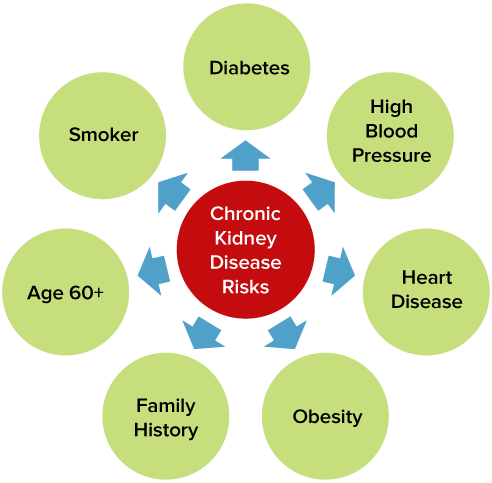If you have a family history of kidney disease, you probably know that you have an increased risk. Potential kidney problems also increase as you age. While you can’t change genetics and your age, many contributing factors are within your control. Let’s look at some of the primary causes of kidney disease and ways to lower your risk.


Controlling Your Kidney Disease Risks
- Diabetes is the leading cause of kidney disease. High blood pressure (hypertension) is the second leading cause. Uncontrolled diabetes and hypertension make your kidneys to work harder to filter waste from your body. This extra work damages your kidneys over time, which can lead to chronic kidney disease. Controlling these two diseases with medication and/or lifestyle changes can help prevent or delay kidney disease.
- Heart diseases damage your blood vessels, leading to kidney disease. In addition, chronic kidney disease can elevate your risk of heart problems. Many types of heart problems can be treated or prevented. Talk to your doctor about your risk and the choices available to lower your risk.
- Obesity takes a toll on your overall health. Being overweight also increases your risk of diabetes and high blood pressure, the two leading causes of chronic kidney disease. Even a small weight loss has positive health effects. Choosing a healthier diet and getting more exercise can help you lose weight. Ask your doctor about the best weight loss plan for you.
- Smoking damages your kidneys and affects your overall health. It also can make existing kidney problems worse. Stopping smoking has both short and long-term health benefits. Make the move to stop smoking now.
Other causes of kidney disease
Cancer, injury and diseases that attack your kidneys can also lead to chronic kidney disease. While you can’t control all risk factors, many steps help lower your risk. Understanding how to manage risks makes a world of difference in preventing or delaying kidney disease. Every step you take is a step toward a healthier you.
